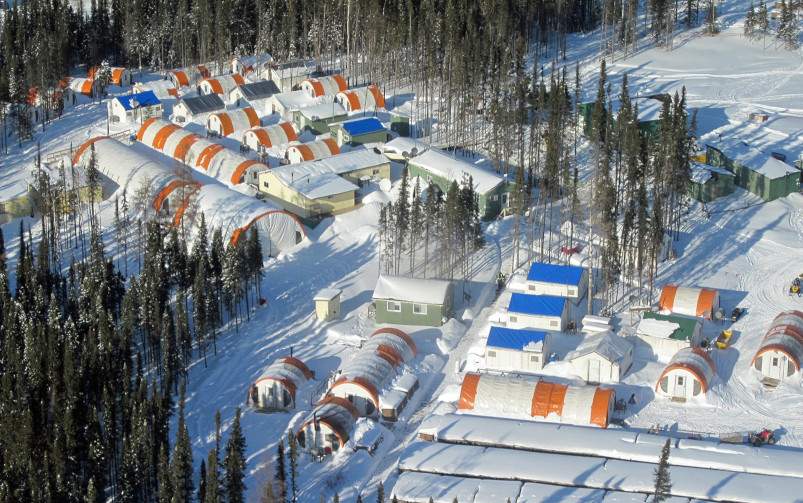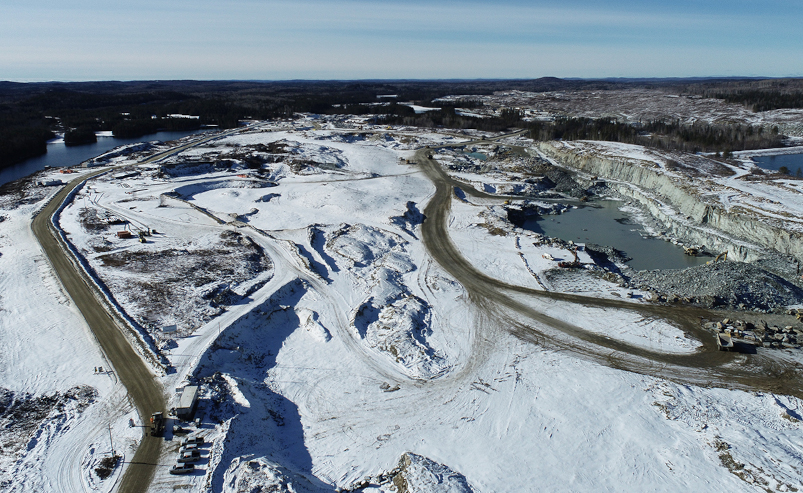Should Bill C-15 pass, the principles of UNDRIP will be implemented across the country. Courtesy of Tobias Reinsch of Pixabay
The federal government tabled legislation in December that, if passed, would bring the principles of the United Nations Declaration of the Rights of Indigenous Peoples (UNDRIP) into law in Canada. That includes the right to free, prior and informed consent for Indigenous peoples in several areas, including resource development.
Also known as Bill C-15, the UNDRIP Act is the first step towards bringing the framework into Canadian law, acknowledging the human rights of Indigenous peoples in Canada and establishing legal accountability in line with the declaration.
The bill does not, however, create new obligations or regulatory requirements for the industry, according to the Government of Canada’s website. Consultation and participation requirements that already exist and are outlined in the new Impact Assessment Act would not be changed. The tabled legislation would, rather, inform the implementation of the government’s legal duties going forward.
Article 32 of the federal bill refers to the rights of Indigenous peoples to “determine and develop priorities and strategies for the development or use of their lands or territories and other resources,” and outlines the need to consult with communities in good faith in order to obtain their free, prior and informed consent particularly when it comes to resource development, utilization and exploitation.
“You can imagine a project decided upon by Indigenous people and the provincial government together – that’s the bestcase scenario for a project,” said regional chief of the BC Assembly of First Nations, Terry Teegee. British Columbia became the first province to adopt UNDRIP legislation in November of 2019.
“The implications are quite profound in terms of how we do business,” he said. Citing historical Supreme Court decisions such as Delgamuukw v British Columbia and Tsilhqot’in v British Columbia which defined the Aboriginal title and established the need for meaningful consultation, respectively, Teegee emphasized that the issues are based on how development occurs. “Not having the blessing of First Nations nor even talking to First Nations, and that’s always been the issue.”
He sees benefits for Indigenous people that include bolstering sovereignty, self-determination and the ability to benefit from resources within their own communities. “There’s First Nations that are not against industrial projects, but we want to be included,” he explained. “Where we want to get to is free prior and informed consent and consulting in the context of making decisions together.”
Related: A means of building resilience in communities where mining companies are currently the sole providers of employment
The legislation has the potential to create more certainty around resource development, something the president and CEO of the Mining Association of B.C., Michael Goehring, is encouraging of. “We’re cautiously optimistic that with the proper implementation federal legislation will support reconciliation and will lead to greater certainty in our sector,” said Goehring.
He sees the importance of establishing and building relationships with Indigenous peoples and communities as a key learning from the adoption of UNDRIP in B.C. that can be applied to the rest of Canada. “Mining projects take years to develop and they operate for decades,” he said. “It’s essential to have respectful dialogue early and often.”
The principle of free, prior and informed consent can raise concerns that UNDRIP may give Indigenous nations a veto power over a project, something that has been dismissed publicly by provincial officials like Scott Fraser, the minister of Indigenous Relations and Reconciliation in B.C., and is described as “fear mongering” by Teegee.
Goehring echoes that he sees no reason for concern around veto. “That is one of the key concerns of UNDRIP and reconciliation and, in British Columbia, the government has publicly stated on numerous occasions that that’s not the case.”
Mining is one the largest private sector employers of Indigenous people in Canada, and the Mining Association of British Columbia cites approximately 30 per cent of the workforce in some B.C. mines as Indigenous. “Having respectful dialogue and collaboration early and often has served our members very well,” said Goehring. He explains that the mining industry in the province has been advancing reconciliation for some time through Impact Benefit Agreements and sharing in mineral tax revenue for some communities.
The Truth and Reconciliation Commission recommends all levels of government adopt the declaration, changes that are already being seen in different places in the mining sector. The Yukon Government’s Mineral Development Strategy and Recommendations, released on December 28, was drafted with UNDRIP’s Article 32 in mind, along with Call to Action 92 of the Truth and Reconciliation Commission of Canada, that calls on corporations to adopt the UNDRIP framework.
The report includes a strategy for modern mineral management that will be developed with Yukon First Nations governments and modernized mineral resource legislation that is in line with treaties with Yukon First Nations, transboundary treaties, UNDRIP and the recommendations of Canada’s Truth and Reconciliation Commission. The strategy specifies for the legislation to be developed within three years.




